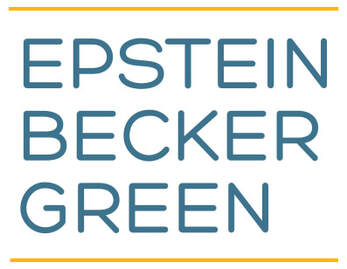Ask the Experts: Worker Misclassification Can Lead to Trouble
|

Q: Are “gig workers” employees and why do employers have to be careful about getting it right?
A: In recent years, the hospitality industry has come to rely more and more on workers within the so-called “gig economy.” Also known as the “sharing economy” or “access economy,” the “gig economy” is activity where people earn income providing on-demand work, services, or goods, often through a digital platform like an app or website. It is very important that employers in the restaurant and lodging industries be aware that a business model that relies on the labor of “gig economy” workers may be vulnerable as lawmakers and regulators grapple with this growing phenomenon.
The concept of “worker misclassification” was a hot topic in Michigan until the pandemic hit. In fact, in 2019, just a few months before most of us had ever heard of “coronavirus,” the state’s Attorney General established a Payroll Fraud unit to crack down on employers who don’t pay workers and withhold payroll taxes properly. As worries about COVID-19 have receded, the Michigan Department of Labor and Economic Opportunity has been renewing attention on employer compliance with the law (explained in this Fact Sheet published by the state’s Unemployment Insurance Agency).
As a preliminary matter, it’s critical that employers understand a few basics about worker classification. In a nutshell, the people you hire with the expectation that they will follow your rules and complete tasks you assign in ways you prescribe may be “employees” that you must put on your payroll, subject to all of the state and federal wage and hour laws that govern employers, as well as other statutory obligations, including workers compensation and other benefits. Regardless of whether these workers are part-time, temporary, probationary, substitute, or casual laborers, they may still be “employees” under the law and employers should treat them as such for payroll and recordkeeping purposes.
On the other hand, the law may consider people with whom you contract—whether formally, informally, or via a third party, such as digital platforms like Grubhub, DoorDash, and Uber Eats—to complete tasks or projects for your business, as independent contractors, depending on a series of factors, including whether you exercise close control over them or the materials and tools that they use for work. Another Fact Sheet provides details on the factors to consider when deciding how to classify a worker.
A: In recent years, the hospitality industry has come to rely more and more on workers within the so-called “gig economy.” Also known as the “sharing economy” or “access economy,” the “gig economy” is activity where people earn income providing on-demand work, services, or goods, often through a digital platform like an app or website. It is very important that employers in the restaurant and lodging industries be aware that a business model that relies on the labor of “gig economy” workers may be vulnerable as lawmakers and regulators grapple with this growing phenomenon.
The concept of “worker misclassification” was a hot topic in Michigan until the pandemic hit. In fact, in 2019, just a few months before most of us had ever heard of “coronavirus,” the state’s Attorney General established a Payroll Fraud unit to crack down on employers who don’t pay workers and withhold payroll taxes properly. As worries about COVID-19 have receded, the Michigan Department of Labor and Economic Opportunity has been renewing attention on employer compliance with the law (explained in this Fact Sheet published by the state’s Unemployment Insurance Agency).
As a preliminary matter, it’s critical that employers understand a few basics about worker classification. In a nutshell, the people you hire with the expectation that they will follow your rules and complete tasks you assign in ways you prescribe may be “employees” that you must put on your payroll, subject to all of the state and federal wage and hour laws that govern employers, as well as other statutory obligations, including workers compensation and other benefits. Regardless of whether these workers are part-time, temporary, probationary, substitute, or casual laborers, they may still be “employees” under the law and employers should treat them as such for payroll and recordkeeping purposes.
On the other hand, the law may consider people with whom you contract—whether formally, informally, or via a third party, such as digital platforms like Grubhub, DoorDash, and Uber Eats—to complete tasks or projects for your business, as independent contractors, depending on a series of factors, including whether you exercise close control over them or the materials and tools that they use for work. Another Fact Sheet provides details on the factors to consider when deciding how to classify a worker.

Getting this right is important. Besides the obligatory withholding for federal and state income taxes, Social Security and Medicaid and the potential for non-exempt workers to earn overtime pay, employee status confers eligibility for workers’ compensation, unemployment benefits, and paid medical leave. It also confers obligations under federal and state workplace statutes, including the federal Title VII of the Civil Rights Act and National Labor Relations Act, and Michigan’s Elliot Larsen Civil Rights act. Workers who think they should be entitled to these benefits and protections but whom their employer classifies as independent contractors have numerous means of challenging their status, including filing complaints with state and/or federal authorities or filing a civil action (and even a class action) in court. Defending, let alone losing, a case like this can be costly, potentially subjecting an employer to mandatory fines, payment of unpaid employment taxes and wages, damages, and other potentially severe penalties.
Finally, it’s important for Michigan employers to remain alert to this issue, because the rules referenced and described above are susceptible to change under current administrations, both at state and national levels. The Biden Administration has squarely set its sights on a theme of “workers’ rights” — not just enforcing them but also expanding them. Among other things, this agenda has brought about proposed changes to long-standing U.S. Department of Labor rules about how to determine who is an employee or an independent contractor, something opposed by the Small Business Association of Michigan. In addition, the National Labor Relations Board (NLRB) recently issued a request for public input about its standard for determining independent contractor status. As a recent NLRB decision makes clear, that agency has taken the position that the National Labor Relations Act has a very broad reach, such that virtually all workers in the United States could be considered “employees” under this federal labor law. While these changes are still pending, they will significantly affect how employers have to treat workers, if finalized.
This “workers’ rights through government intervention” trend is also evident statewide in Michigan, where, for the first time in 40 years, the Democrats hold “triplex” powers, controlling both houses of the state legislature as well as the Governorship. This enables quick passage of partisan legislation, as seen in the recent repeal of the state’s Freedom to Work law. The current legislative agenda includes a panoply of proposals that would modify existing Michigan employment-related laws, including H.B. 4390. That bill, just introduced on April 12, 2023, would create new and severe penalties for employers who misclassify employees as independent contractors, including fines of up to $10,000 and triple damages.
It pays to pay attention, and employers in the hospitality industry will need to keep a sober eye on legal developments. Pass the mocktails!
Finally, it’s important for Michigan employers to remain alert to this issue, because the rules referenced and described above are susceptible to change under current administrations, both at state and national levels. The Biden Administration has squarely set its sights on a theme of “workers’ rights” — not just enforcing them but also expanding them. Among other things, this agenda has brought about proposed changes to long-standing U.S. Department of Labor rules about how to determine who is an employee or an independent contractor, something opposed by the Small Business Association of Michigan. In addition, the National Labor Relations Board (NLRB) recently issued a request for public input about its standard for determining independent contractor status. As a recent NLRB decision makes clear, that agency has taken the position that the National Labor Relations Act has a very broad reach, such that virtually all workers in the United States could be considered “employees” under this federal labor law. While these changes are still pending, they will significantly affect how employers have to treat workers, if finalized.
This “workers’ rights through government intervention” trend is also evident statewide in Michigan, where, for the first time in 40 years, the Democrats hold “triplex” powers, controlling both houses of the state legislature as well as the Governorship. This enables quick passage of partisan legislation, as seen in the recent repeal of the state’s Freedom to Work law. The current legislative agenda includes a panoply of proposals that would modify existing Michigan employment-related laws, including H.B. 4390. That bill, just introduced on April 12, 2023, would create new and severe penalties for employers who misclassify employees as independent contractors, including fines of up to $10,000 and triple damages.
It pays to pay attention, and employers in the hospitality industry will need to keep a sober eye on legal developments. Pass the mocktails!




